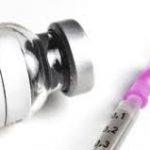By Asma’u Ahmad
The Human Papilloma Virus (HPV) vaccination in sexually active women does not guarantee immunity against the virus, Mrs Rachael Lenny-Iwaloye, a nurse at the National Hospital, Abuja said.
Mrs Lenny-Iwaloye, who is working at the cervical screening centre of the hospital, made this known in an interview with newsmen on Monday in Abuja.
According to her, women should get vaccinated before they become sexually active in order to benefit from it, because a woman that is sexually active and got vaccinated does not get the optimal benefit.

She noted that this happens because some women might have been exposed to some of the HPV types targeted by the vaccines.
She explained that there were over 100 types of HPV and about 40 kinds can infect the genital area such as vulva, vagina, cervix, anus and penis as well as the mouth and throat.
“These kinds of HPV are spread during sexual contact which could cause cancer while other types of HPV could cause common warts like hand warts and plantar warts on the feet,” said the expert.
She added that the HPV infections are very common and almost everyone that is sexually active could get the virus at some point in their lives.
She also said that most of the virus was not harmful and can disappear on its own, while others could lead to certain types of cancer such as anal, vagina and cervical, among others.
The expert identified two types of HPV; the high risk and low risk, saying that types 6 and 11 does not cause cancers and are considered low risk. While the 16 and 18 HPV are considered high risk because they could lead to majority of cancers.
Lenny-Iwaloye however said that a woman that is sexually active and above 45 does not need the vaccine because there is the tendency that efficiency of the HPV vaccine would not be prominent.
“Vaccine might not actually work very well to an older woman becauseas you get old your sexual drive is reduced and the tendency of getting infected becomes low. It is better to give the vaccines to young girls from age nine to 14 that are not sexually active at least two shots every six months in order to help prevent it.
“From 15 to 45 should get three shots of the vaccine every six months in order to help prevent development of the virus to a minimal level,” she said.
Lenny-Iwaloye noted that human HPV is easily spread from sexual skin to skin contact with someone who has it if the vulva, vagina, cervix, penis or anus touches someone else’s genitals or mouth and throat during sex.
She therefore advised women to go for routine HPV test as well as pap test and screening for cervical cancer due to the fact that the vaccines does not protect against all types of cervical cancer.
She also urged sexually active women to lower their risk of getting HPV by sticking to one partner.


